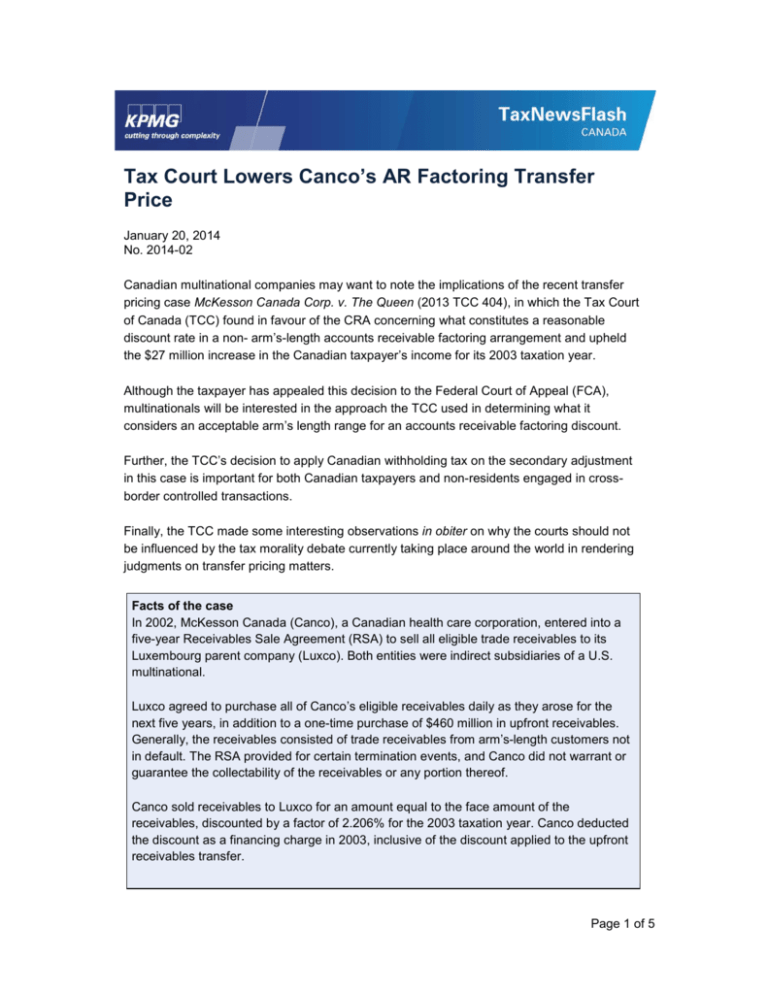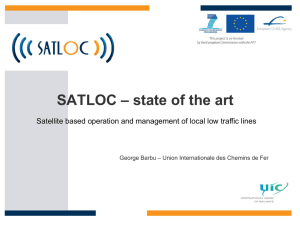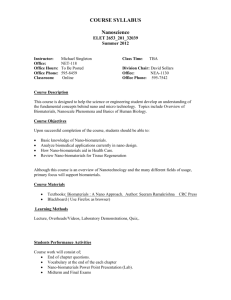
Tax Court Lowers Canco’s AR Factoring Transfer
Price
January 20, 2014
No. 2014-02
Canadian multinational companies may want to note the implications of the recent transfer
pricing case McKesson Canada Corp. v. The Queen (2013 TCC 404), in which the Tax Court
of Canada (TCC) found in favour of the CRA concerning what constitutes a reasonable
discount rate in a non- arm’s-length accounts receivable factoring arrangement and upheld
the $27 million increase in the Canadian taxpayer’s income for its 2003 taxation year.
Although the taxpayer has appealed this decision to the Federal Court of Appeal (FCA),
multinationals will be interested in the approach the TCC used in determining what it
considers an acceptable arm’s length range for an accounts receivable factoring discount.
Further, the TCC’s decision to apply Canadian withholding tax on the secondary adjustment
in this case is important for both Canadian taxpayers and non-residents engaged in crossborder controlled transactions.
Finally, the TCC made some interesting observations in obiter on why the courts should not
be influenced by the tax morality debate currently taking place around the world in rendering
judgments on transfer pricing matters.
Facts of the case
In 2002, McKesson Canada (Canco), a Canadian health care corporation, entered into a
five-year Receivables Sale Agreement (RSA) to sell all eligible trade receivables to its
Luxembourg parent company (Luxco). Both entities were indirect subsidiaries of a U.S.
multinational.
Luxco agreed to purchase all of Canco’s eligible receivables daily as they arose for the
next five years, in addition to a one-time purchase of $460 million in upfront receivables.
Generally, the receivables consisted of trade receivables from arm’s-length customers not
in default. The RSA provided for certain termination events, and Canco did not warrant or
guarantee the collectability of the receivables or any portion thereof.
Canco sold receivables to Luxco for an amount equal to the face amount of the
receivables, discounted by a factor of 2.206% for the 2003 taxation year. Canco deducted
the discount as a financing charge in 2003, inclusive of the discount applied to the upfront
receivables transfer.
Page 1 of 5
TaxNewsFlash – Canada
Tax Court Lowers Canco’s AR Factoring Transfer Price
January 20, 2014
No. 2014-02
The CRA challenged the discount rate as greater than the amount which would have been
agreed between persons dealing at arm’s length. Accordingly, the CRA reduced the
discount rate to 1.013%, thereby increasing Canco’s 2003 taxable income by $27 million.
The parties also entered into a Servicing Agreement, where Canco would service the
receivables for a fixed annual fee of $9.6 million. The Servicing Agreement was not
contested by the CRA, although it was referenced in the TCC’s reasons for judgment.
In addition, the CRA issued a consequential assessment on Canco for failure to withhold
Part XIII withholding tax (i.e., a secondary adjustment). The CRA assessed Part XIII
withholding tax of 5% on the disallowed amount of the original discount as, under
Canadian tax law, the disallowed amount is deemed a dividend paid by Canco to Luxco.
Summary of the TCC’s decision
The TCC found in favour of the CRA that the 2.206% discount rate applied to Canco’s sale of
trade accounts receivables to Luxco was in excess of what would have been agreed to by
arm’s-length parties. As a result, the TCC’s Honourable Justice Patrick J. Boyle upheld the
CRA’s transfer pricing reassessment that increased the taxpayer’s taxable income by
approximately $27 million in 2003 (a short three-month taxation year).
In its decision, the TCC computed its own range of acceptable discount rates, using a
formula generally advocated by both parties. The CRA’s proposed discount rate (1.013%)
was within this range but Canco’s discount rate of 2.206%, however, fell outside the
acceptable range as determined by the TCC.
The TCC also decided in favour of the CRA on the secondary matter of the taxpayer’s
obligation to withhold tax on the deemed dividend, a secondary adjustment resulting from the
(primary) transfer pricing adjustment to the discount rate. While Canadian domestic law
contains no statute of limitations for Part XIII withholding tax, the taxpayer argued that
Article 9 of the Canada-Luxembourg Income Tax Treaty (Treaty) restricted the CRA’s ability
to assess withholding tax after five years from the end of the taxation year to which the
adjustment relates. The TCC decided that the wording in Article 9 of the Treaty does not
extend to Canadian taxpayers’ obligations to have withheld tax on a deemed dividend.
This case, the latest Canadian court decision in the realm of transfer pricing, was found in
favour of the CRA even though other recent Canadian transfer pricing cases were decided in
favour of the taxpayer (General Electric Capital Canada Inc. (FCA) and Alberta Printed
Circuit Ltd. (TCC)). In GlaxoSmithKline Inc., the Supreme Court of Canada referred the case
back to the TCC for retrial (see KPMG’s TaxNewsFlash-Canada 2012-32, “GlaxoSmithKline
Inc. — Supreme Court Sends Transfer Pricing Dispute Back to Square One”).
Page 2 of 5
TaxNewsFlash – Canada
Tax Court Lowers Canco’s AR Factoring Transfer Price
January 20, 2014
No. 2014-02
Details of the TCC’s decision
Discount rate
The TCC agreed that the formula to determine the discount rate comprised three main
components:
1
2
3
Yield Rate (reflecting the financing aspect)
Loss Discount (reflecting the credit risk of Canco’s customers whose receivables were
covered by the RSA)
Discount Spread (reflecting some risks associated with Canco’s customers’ increased
use of rebate entitlements and prompt payment discounts).
The Yield Rate component was largely undisputed. However, the TCC applied floating terms
to the Loss Discount and Discount Spread, rather than fixed terms set by Canco and Luxco in
the RSA. Further, the TCC re-computed the discount rate adjustments used by Canco in the
RSA (described below) to derive the Loss Discount and Discount Spread for the decision.
The adjustments applied in the RSA by the taxpayer primarily increased the effective
discount rate, and the TCC proposed substantially lower adjustments, as explained below.
Reasons for TCC’s discount rate
The TCC stated that a key reason for recomputing the Loss Discount and Discount Spread
was to apply floating terms that may benefit both Canco and Luxco. The original terms were
fixed based on several risk assumptions made when the RSA was drafted. Certain discount
rate adjustments were, according to the TCC, cushioned in favour of Luxco to account for
these risks assumed in the RSA. The TCC reduced some discount rate adjustments, such as
the prompt-payment discount, and eliminated other adjustments, such as the accrued rebate
dilutions discount. The TCC reasoned that adequate evidence was not provided to
substantiate the reasonableness of certain discount rate adjustments in the RSA.
KPMG observations
The TCC disagreed with Canco’s argument that the CRA’s determination of the discount
rate was a re-characterization under the Income Tax Act. The TCC stated that its
approach to determining an arm’s-length discount rate was within the normal realm of
transfer pricing adjustments. The TCC suggested that the quantum of an amount can be
adjusted under the transfer pricing rules of the Income Tax Act based on the terms and
conditions agreed to by arm's-length parties, and these adjustments can be made to
conform to the arm's-length standard without giving rise to a re-characterization of the
transaction itself.
The transaction can be re-characterized when the bona fide primary purpose of the
transaction was to obtain a tax benefit, and the transaction would not have been entered
into between persons dealing at arm’s length, under the transfer pricing rules of the
Income Tax Act.
Page 3 of 5
TaxNewsFlash – Canada
Tax Court Lowers Canco’s AR Factoring Transfer Price
January 20, 2014
No. 2014-02
In recomputing the discount rate components, the TCC either disregarded or significantly
reduced many of the discount rate adjustments that Canco was relying on. The
components were recomputed based on facts provided in evidence, a requirement of court
procedure. Since the RSA fixed many elements that could increase or decrease, the TCC
found it appropriate to evaluate the reasonableness of the discount rate adjustments from
both parties’ perspective, so long as arm’s-length factoring arrangements are negotiated in
a similar fashion.
This case is a reminder that documentation of the arm’s-length nature of the various terms
and conditions of an intercompany transaction is critical to demonstrate compliance with
transfer pricing rules.
Treaty limitations do not apply to withholding tax assessments
The TCC agreed with the CRA that the assessment of the Part XIII withholding obligation on
Canco was not restricted by Article 9(3) of the Treaty. Article 9(3) of the Treaty provides a
maximum five-year period for either country to make a transfer pricing adjustment to the
taxable income of a related company residing in the other country under the circumstances
described in article 9(1) of the Treaty. The TCC reasoned that Article 9 of the Treaty cannot
apply to the CRA’s assessment, noting that the CRA was enforcing a collection provision in
Canada’s domestic legislation on Canco, and not, per se, adjusting Luxco’s income and
taxing it accordingly through Canco.
KPMG observation
The TCC’s decision on the withholding tax issue in this case is important for both
Canadian taxpayers and non-residents engaged in cross-border controlled transactions.
Many of Canada’s income tax treaties include a limitation period similar to the CanadaLuxembourg Income Tax Treaty. However, this decision if upheld on appeal may indicate
that Canada’s tax treaties will not override Canada’s domestic legislation for Part XIII
withholding tax assessments that are issued as secondary adjustments, albeit only where
the primary transfer pricing adjustment is made within the relevant treaty time limitation.
Relevance of tax morality
Also of interest are certain obiter comments the TCC made, presumably in light of the
OECD’s Base Erosion and Profit Shifting (BEPS) initiative and greater call for tax morality
and transparency (for details, see KPMG’s TaxNewsFlash-Canada 2013-27, “OECD Action
Plan Could Signal a Shift in the Global Tax Landscape”).
The TCC noted that the CRA did not directly or indirectly raise “any fair share or fiscal
morality arguments that are currently trendy in international tax circles” and that the CRA
“wisely stuck strictly to the tax fundamentals: the relevant provisions of the legislation and the
evidence relevant thereto”. The TCC pointed out that questions of tax morality and fair share
of taxes are within the realm of Parliament.
Page 4 of 5
TaxNewsFlash – Canada
Tax Court Lowers Canco’s AR Factoring Transfer Price
January 20, 2014
No. 2014-02
We can help
Your KPMG adviser can help you assess the effect of the TCC’s decision on your business,
and point out ways to take advantage of any benefits arising from the decision or help
mitigate its impact. For more details on this decision and its potential impact, contact your
KPMG adviser.
Download KPMG’s Tax Hub Canada app
KPMG’s free Tax Hub Canada App for iPads and Blackberrys provides timely, convenient
tax news and tax rates to help you respond to changes in tax rules and regulations.
Download the app today.
Information is current to January 17, 2014. The information contained in this TaxNewsFlash-Canada is of a general
nature and is not intended to address the circumstances of any particular individual or entity. Although we endeavour
to provide accurate and timely information, there can be no guarantee that such information is accurate as of the
date it is received or that it will continue to be accurate in the future. No one should act upon such information
without appropriate professional advice after a thorough examination of the particular situation. For more information,
contact KPMG’s National Tax Centre at 416.777.8500.
KPMG LLP, an Audit, Tax and Advisory firm (kpmg.ca) and a Canadian limited liability partnership established under
the laws of Ontario, is the Canadian member firm of KPMG International Cooperative (“KPMG International”). KPMG
member firms around the world have 152,000 professionals, in 156 countries.
The independent member firms of the KPMG network are affiliated with KPMG International, a Swiss entity. Each
KPMG firm is a legally distinct and separate entity, and describes itself as such.
KPMG's Canadian Web site is located at http://www.kpmg.ca/
© 2014 KPMG LLP, a Canadian limited liability partnership and a member firm of the KPMG network of independent
member firms affiliated with KPMG International Cooperative (“KPMG International”), a Swiss entity. All rights
reserved.
The KPMG name, logo and “cutting through complexity” are registered trademarks or trademarks of KPMG
International.
Page 5 of 5









